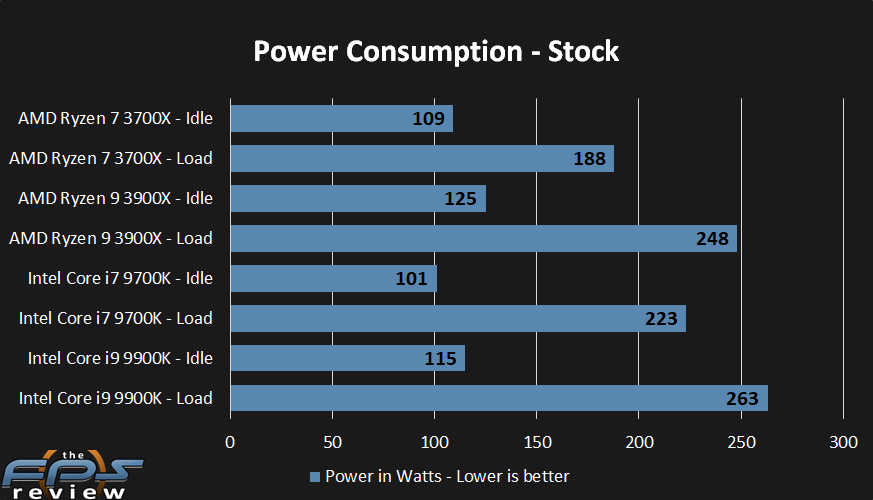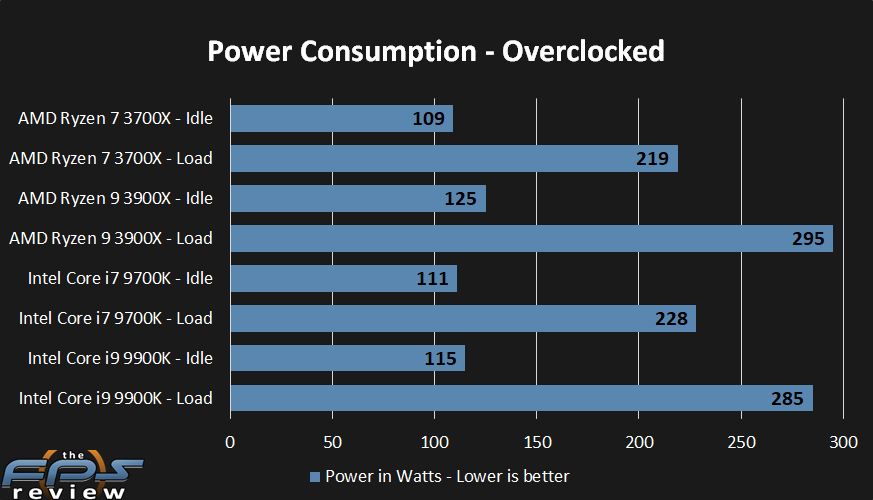Power Consumption
When it comes to power consumption, the Ryzen 7 3700X has a lot going for it. As a 65watt TDP part, it’s one of the most efficient desktop processors on the market today. AMD states that these CPU’s, even under PB2 the Ryzen 7 3700X should only pull upwards of 88watts. Naturally, we actually tested the power consumption to verify AMD’s claims. If you want to know more specifics about AMD’s 7nm process and the power efficiency of the architecture, you can read about it here.

As you can see, the Ryzen 7 3700X pulls less power idle than our Ryzen 9 3900X, which makes sense. The power consumption is also lower than our Intel Core i9 9900K at idle. Under full load, things are even better with our 3700X test system consuming only 188watts. This is a full 51 watts less than our Ryzen 9 3900X test system using the same motherboard, RAM, SSD, and graphics card.

This isn’t exactly a revelation as AMD is using TSMC’s 7nm process while Intel is still utilizing its 14nm process. While quite mature, there is only so much you can do with an older process. Intel also has to run its CPU’s at much higher frequencies in order to maintain their lead in single-threaded performance. A lead that’s diminished considerably, and doesn’t necessarily apply to all situations.
Overclocked, power consumption increased dramatically, but the overall power consumption was considerably less than that of our other test systems. Obviously, this is no surprise when comparing the Ryzen 7 3700X to the Ryzen 9 3900X. When you compare the Ryzen 7 3700X to the Core i9 9900K, the 3700X becomes even more impressive. The core and thread counts are the same, and it’s clear that AMD has leapfrogged Intel when it comes to efficiency.
This should come as no surprise given the fact that Intel is still using its 14nm process and AMD is using TSCM’s 7nm process. Intel also has to run its CPU clocks much higher to maintain its single-threaded performance, which consumes more power.
